Graham Reid | | 5 min read
David S Ware: Sweet Georgia Bright

When the histories of jazz in the 20th
century are published one name from the last two decades could loom
unnaturally large: Wynton Marsalis.
In some books he'll be hailed as the
man who saved jazz from factionalism, commercial isolation and the
like. In others he'll be the revisionist who used unquestionable
talent, persuasive intellect and immense personal charm to
marginalise artists and styles his precociousness and dogmatic
attitude chose to dismiss. Count me with the latter.
On many levels I admire Marsalis. When
he first came to New Zealand it was my pleasure to interview him and
then we wandered around Wellington's Michael Fowler Centre together
chatting about Miles Davis’ health, where all this was going, the
attitude and so on. Real nice guy.
I've seen him play and have interviewed
him a few times since. I believe I've honestly reported what he says,
and because he’s much more amusing than his words appear in bare
print, I've faithfully tried to represent that.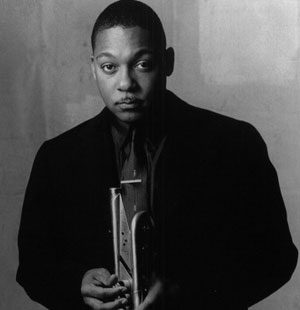
But I've also added a little necessary
corrective gloss. I've certainly mentioned his extensive catalogue --
what is it now, 40 or 50 albums? -- seems scrupulously free of what
we might call memorable compositions.There's also no great pool of
musicians who want to perform his stiffly reverential material.
Maybe at the end of this particular
century when other books are written, Wynton will be seen as the
Boswell to much bigger Johnsons, if you get the dick-swinging
analogy.
This media savvy son of the late 20th
century initially re-positioned jazz back into parameters Miles Davis
set in the early 60s -- which Davis abandoned. As Wynton had too when
he realised dogma is fine, but music doesn't stand still. What
Marsalis discovered after studying Davis' Sixties suits and sounds
was that from there you had to go either forward or back.
He persuaded many people going back was
better. He now offers a passage to Duke Ellington.
Well cool -- and it is, really
terrific. But?
Wynton may not like, for example, the
jazz fusion of Davis, Weather Report, Al DiMeola and others. Fine.
However he forgets or ignores that most
people didn't and don’t like it either and are selective in their
listening to it.
But that doesn't mean it didn't exist
or some good didn't come out of it. It certainly seems to be as
influential on young players as Wynton once was.
More so perhaps.
What irritates most about his
revisionist and contagious attitude is many styles cf jazz -- and I'm
thinking specifically of free jazz now -- are not only written out by
omission, but that it consistently considers them a side issue: “To
be abstract means to be abstract, that's all,” Wynton said to me in
January 2000.
Yeah, and...?
Sure it's just another style. But it's
been a damn important vehicle of expression, especially for black
artists like the fiery Revolutionary Ensemble, the musico-political
lightning rod of the Art Ensemble of Chicago, towering individuals
such as Ornette Coleman, Anthony Braxton, Leroy Jenkins, Cecil
Taylor, Albert Ayler...
Free jazz extended the contract John
Coltrane wrote and – revisionists notwithstanding -- it hasn't gone
away.
One of its most long serving
practitioners as the millennium turned was 51-year old, nerve-ending
tenor saxophonist David S. Ware.
Born in New Jersey and schooled in
Cecil Taylor's bands in the mid-Seventies, he possesses that spiritual
impulse which drove Coltrane, speaks of sciences as chess master
Braxton might, and makes sometimes extraordinary music. Oh, and if
you think rock connections somehow confer status on a jazz musicians:
he's opened for Sonic Youth.
So that probably means he's okay,
right?
Better than that, he makes muscular
free jazz that connects with and extends the lineage of Coltrane,
Braxton, Taylor and Arthur Blythe.
Ironically – or just coincidentally –
he was on Columbia alongside Wynton, and was introduced to it by
Branford, a man with more catholic taste and a democratic attitude to
music than his brother.
Ware's album at the time was
Surrendered, a real broad-screen affair.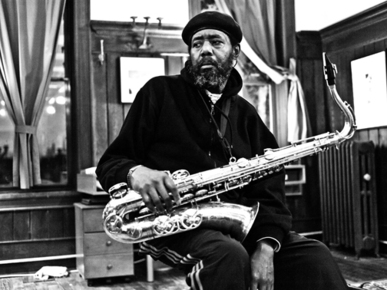
It was as out-there as his previous
stuff, which made it the ideal starting point of free jazz was
outside your orbit and you were curious.
Of course the upshot was some critics
expressed the customary qualms which aficionados and bores do about
most idioms whether it be punk, country music or razor gargling. Oh,
he's sold out. Just look at the title!
Let's give the artist some credit. This
isn't a Rod Stewart or All Saints career move.
It's an album by a man who had played
this music for 30 years and he made the album he wanted to make. You
can't apply the litmus test of what his critics wanted him to make
wanted him to make. (It's usually more of what they liked before.)
Consider instead Surrendered for what
it is: an approachable way in to free jazz.
There are recognisable tunes, yes. But
that's neither buying in or selling out. It bridges the gap between
interminable illiterate soloing (leave that to those who think “free”
means making it up as you go along) and the real revolutionary spirit
which drives this music.
Ware points out in the liner notes that
free jazz isn't free, it comes at great cost. There are no hit
records or Grammys, praise and gratitude come from those who get
what's going on, and nearly 40 years after Coleman, Coltrane,Taylor
and Albert Ayler tore down the walls of harmonic and rhythmic bias,
“the standard reactions are still scorn, disbelief and dismissive
apathy. In other words you pay to play it”.
Gee, I wonder who might need to be
reminded of that?
When the histories of 20th century jazz
are published, here's a tip: Turn first to the pages about free jazz.
If there aren't many or it is given cursory treatment wait for a
better, more honest one.

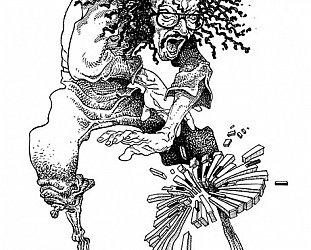
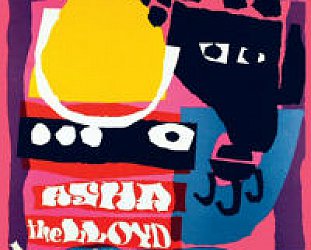
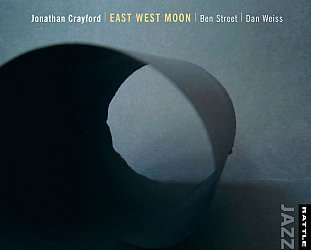
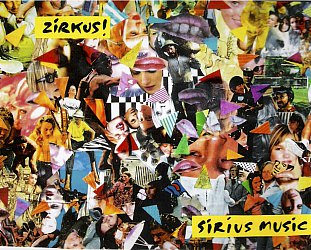
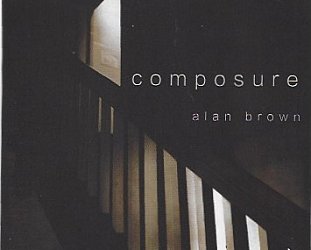
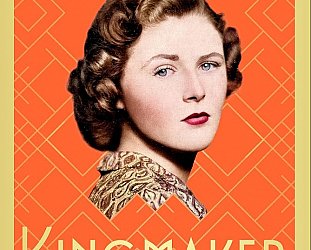
Chris - Oct 11, 2010
Thanks... the quartet with Shipp, Parker and either Susie Ibarra, Guillermo E Brown or even Marc Edwards on drums is truly epic. Check out the new trio recording on Aum Fidelity called Onecept... i haven't yet: so much to hear, so little money:)
SaveAngela Soutar - Jul 5, 2018
Good to hear that judgement on W. Marsalis. I've always felt a little guilty for not liking his work, despite all the hypey kudos he's been given.
Savepost a comment